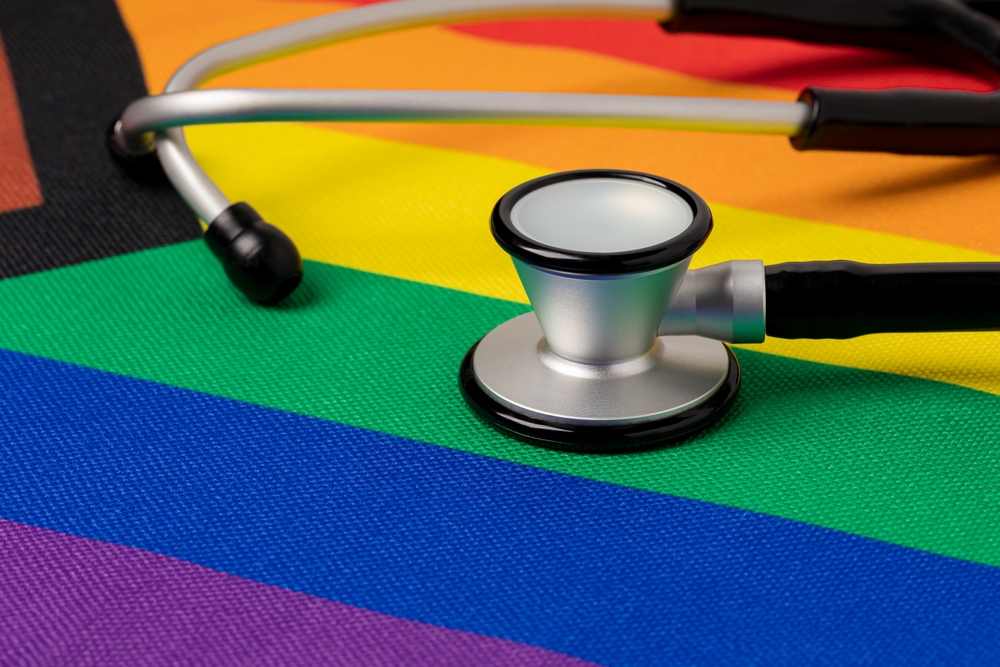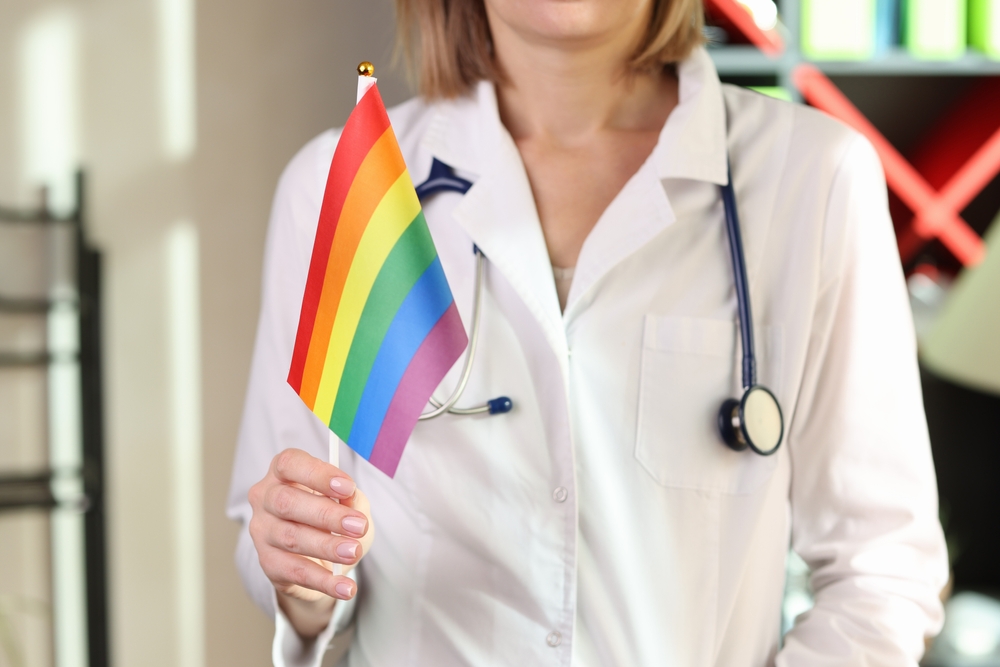LGBTQ Oriented Substance Use Treatment
Lesbian, gay, bi-sexual, transgender, and queer (LGBTQ)-identifying adults are more likely than straight adults to have substance misuse and mental health issues, including clinical depression and suicidal thoughts. This shows a need for LGBTQ oriented drug rehab and substance use programs.
According to a Substance Abuse and Mental Health Services Administration (SAMHSA) 2023 study report, about 1/3 of the LGBTQ male respondents and about 1/4 of the female respondents to the study had a substance use disorder (SUD) within the past year.

Lesbian and bisexual females were more likely than straight females to have engaged in binge drinking and were about twice as likely to have engaged in heavy drinking. Gay and bisexual males and females were two to three times more likely than their straight counterparts to have used illicit drugs other than marijuana.
Common substances misused by LGBTQ individuals besides marijuana include alcohol, opioid prescription medications, and cocaine.
Diagnoses of serious mental illnesses were three times higher among bisexual males than among straight males, and more than twice as high among gay males than among straight males. More than one in four bisexual females and more than one in seven lesbian females had a major depressive episode during the previous year.
Sexual minority males were two to three times more likely than straight males to have had a major depressive episode in the previous year. Bisexual females were six times more likely to have attempted suicide.
These staggering statistics for adults are unfortunately eclipsed by statistics for LGBTQ youth. A 2022 Trevor Project study looking at substance use and suicide risk among LGBTQ youth found that lesbian, bi-sexual, and gay high school students had significantly higher rates of substance use than their straight peers.
56% of the LGBTQ youth in the study had consumed alcohol in the past year, and 34% had used marijuana. LGBTQ youth who reported illicitly using prescription drugs were three times more likely to attempt suicide.
Why the LGBTQ Population Has Higher Rates of Substance Use
The Center for American Progress is an independent U.S. policy institute that has been reporting on LGBTQ issues since the early 2000s. They have concluded that three main factors contribute to the high prevalence of substance use in the LGBTQ population:
Chronic Stress
that is associated with the LGBTQ experience is a major factor. Social prejudice, a non-supportive culture, discriminatory policies and laws, and uneven healthcare parity (which has improved in recent years) are contributors to the stressful lifestyles of LGBTQ individuals.
Discrimination
including anti-gay and anti-transgender social pressures contributed to LGBTQ individuals avoiding (more so in the earlier years of the 2000s than recently) “coming out of the closet” and affirming their lifestyles.
Insufficient Access to Affordable and Culturally Competent Health and Mental Health Care
Prior to the height of the AIDS epidemic that spread among the LGBTQ population in the early 2000s, the need for LGBTQ-specific healthcare was not generally recognized or addressed. But because of the AIDS epidemic, the need became apparent, and many new organizations were created to assist this population.
Today, LGBTQ mental health and substance misuse care that are sensitive to LGBTQ needs are much more readily available.
Social Challenges of LGBTQ Population the Contribute to Substance Misuse

Social and cultural factors also contribute to the use and misuse of substances in the LGBTQ population. Some of these factors include:
Continued Sparsity of LGBTQ-Specific Treatment Services
keeps some LGBTQ individuals from seeking treatment to curb their substance use habits.
“Coming Out” Pressures and Stresses
often have negative mental and emotional influences on LGBTQ individuals that makes them reluctant to seek out psychological care.
Trauma
associated with bullying, shaming, or mental or physical violence makes some LGBTQ individuals hesitant and distrustful and less likely to want to expose their true feelings in a rehab or counseling environment.
Socialization at Clubs and Bars
a typical method of meeting opportunities for LGBTQ people, creates an environment that encourages, rather than discourages, substance use.
Benefits of LGBTQ-Specific Addiction Treatment Programs
Regardless of the challenges, accessing treatment for substance misuse at a drug rehab that offers specialty programming for LGBTQ individuals provides many benefits:
- LGBTQ-specific addiction rehab programs emphasize counseling that can address needs that are unique to LGBTQ individuals, such as social stigma, violence and bullying, shame, and social isolation.
- LGBTQ-only groups can encourage openness of dialogue and reduce concerns about embarrassment, or stigma.
- Acceptance and support from peers can help resolve issues related to negative self-beliefs and attitudes, including internalized homophobia.
Types of LGBTQ Addiction Treatment Rehabs

Addiction treatment that addresses the unique needs and perspectives of LGBTQ individuals can be found, though not plentiful. In 2020, 12.6% of mental health facilities and 17.6% of substance use disorder treatment facilities offered LGBTQ-specific programs. By 2023 the number of addiction rehab facilities offering LGBTQ-specific programs had grown to 24.5%. However, this specialty type of programming continues to be limited and needs to be expanded.
LGBTQ-Specific Programming in Residential Rehabs
The most likely facilities to offer LGBTQ-specific programming are privately owned residential rehabs. Such facilities are more likely to be located in western states and are more likely to be for-profit facilities.
For-profit residential facilities are also more likely to offer holistic or alternative treatments, such as outdoor adventure therapies, yoga, and art therapy.
Detox and Withdrawal Management LGBTQ-Specific Programs
The same types of residential rehab facilities discussed above would be more likely than outpatient facilities to offer LGBTQ-specific detox services.
Outpatient LGBTQ-Specific Programs
There are some outpatient programs that offer LGBTQ-specific programs, but they are limited. You would have to investigate the offerings of each facility under consideration to see if they included this service.
LGBTQ-Specific Counseling and Therapies
Substance misuse treatment rehabs that offer LGBTQ-specific programming usually include the following LGBTQ-related offerings:
Cognitive Behavioral Therapy (CBT)
CBT challenges internalized negative beliefs; it fosters emotional regulation that allows you to respond to triggered emotions in a more flexible and socially tolerable way.
Trauma Therapy
Trauma Therapy addresses the effects of bullying, violence, or stigmatization.
Experiential Therapies
Experiential therapies (music, art, role play, etc.) that encourage expression in non-verbal ways allow clients to share feelings that may be difficult to talk about.
Gay Affirmative Practice
Gay Affirmative Practice (GAP) was introduced into addiction rehab counseling in 2006 by PhD, MSW therapist Catherine Crisp. She created the GAP model that most LGBTQ-specific programming reflects and is modeled after. The major tenets of GAP are:
- Don’t assume that a client is heterosexual.
- Believe that homophobia in the client and society is the problem rather than sexual orientation.
- Accept identifying as a gay, lesbian, or bisexual person as a positive outcome of the helping process.
- Work with clients to decrease internalized homophobia that they may be experiencing so that clients can achieve a positive identity.
- Become knowledgeable about different theories of the coming-out process.
- Deal with one’s own homophobia and heterosexual bias.
Financial Considerations
Paying for addiction treatment is always a major factor in choosing a program. Here are some options:
Private Health Insurance
Most major private insurances will cover drug rehab treatment. Deductibles and copays may apply, so check with your provider to learn about these, as well as any out-of-network considerations that may also apply.
Medicare and Medicare Advantage Health Plans
If you haveMedicare or a Medicare Advantage plan, your insurance will cover mental health and substance misuse care, providing that you have a medical diagnosis of a substance use disorder (SUD).
The coverage includes both inpatient and outpatient programs and detox treatment. Medications used during treatment, such as methadone for detox, psychotherapy, and patient addiction and relapse prevention education are also covered therapies.
State Funded Financial Assistance
If you are uninsured or underinsured, financial aid is often available to help pay for drug rehab. State funded drug rehab programs provide free or low-cost drug rehab. You can find a listing of state drug rehab agencies at https://findtreatment.gov/state agencies.
Assistance for Military Veterans
If you are a military veteran, the VA offers substance misuse programs in many VA locations. You’ll find a directory listing of VA substance use disorder programs at their website. Many VA substance use disorder programs include LGBTQ-friendly services.
Funding from the Rehab Center Itself
Many drug rehabs have their own internal financial assistance programs. Check with the facility you are considering and ask about the possibility of financial assistance.
Finding the Right Drug Rehab Program

When choosing a drug rehab facility to address your LGBTQ-related recovery concerns, it is important to do your research. There is not a single database that lists all LGBTQ-friendly rehab programs.
However, some of the LGBTQ Resources listed in the segment at the end of this article do offer suggestions, and these resources can be helpful in identifying options.
Also consider the location of the rehab, the cost of the program, the treatment approach, and whether it suits you, and what kind of accreditation the facility has.
Look for rehabs that have accreditation by JCAHO–the Joint Commission on Accreditation of Healthcare Organizations, or CARF–Commission on Accreditation of Healthcare Organizations. For an opioid treatment facility, look for a facility that has a SAMHSA certified opioid program.
Resources for Finding LGBTQ-specific Rehab Programs
To find LGBTQ+ friendly rehab or mental health support, you can call this line to speak with someone who can assist you in getting the help you need.
Alternatively, our directory includes a wealth of treatment centers. Filter by “LGBTQ Friendly Rehab”, and get help today.
- Why the LGBTQ Population Has Higher Rates of Substance Use
- Social Challenges of LGBTQ Population the Contribute to Substance Misuse
- Benefits of LGBTQ-Specific Addiction Treatment Programs
- Types of LGBTQ Addiction Treatment Rehabs
- Financial Considerations
- Finding the Right Drug Rehab Program
- Resources for Finding LGBTQ-specific Rehab Programs
More Specialty Rehab Programs

Executive Drug Rehab
Professional and Executive Drug Rehab Professionals, especially those in high level positions, such as business executives, and medical professionals, including

Holistic Drug Rehab
Holistic Alternatives to Substance Use Treatment Holistic drug rehab and substance abuse treatment are becoming increasingly available as more people

LGBTQ Drug Rehab Programs
LGBTQ Oriented Substance Use Treatment Lesbian, gay, bi-sexual, transgender, and queer (LGBTQ)-identifying adults are more likely than straight adults to